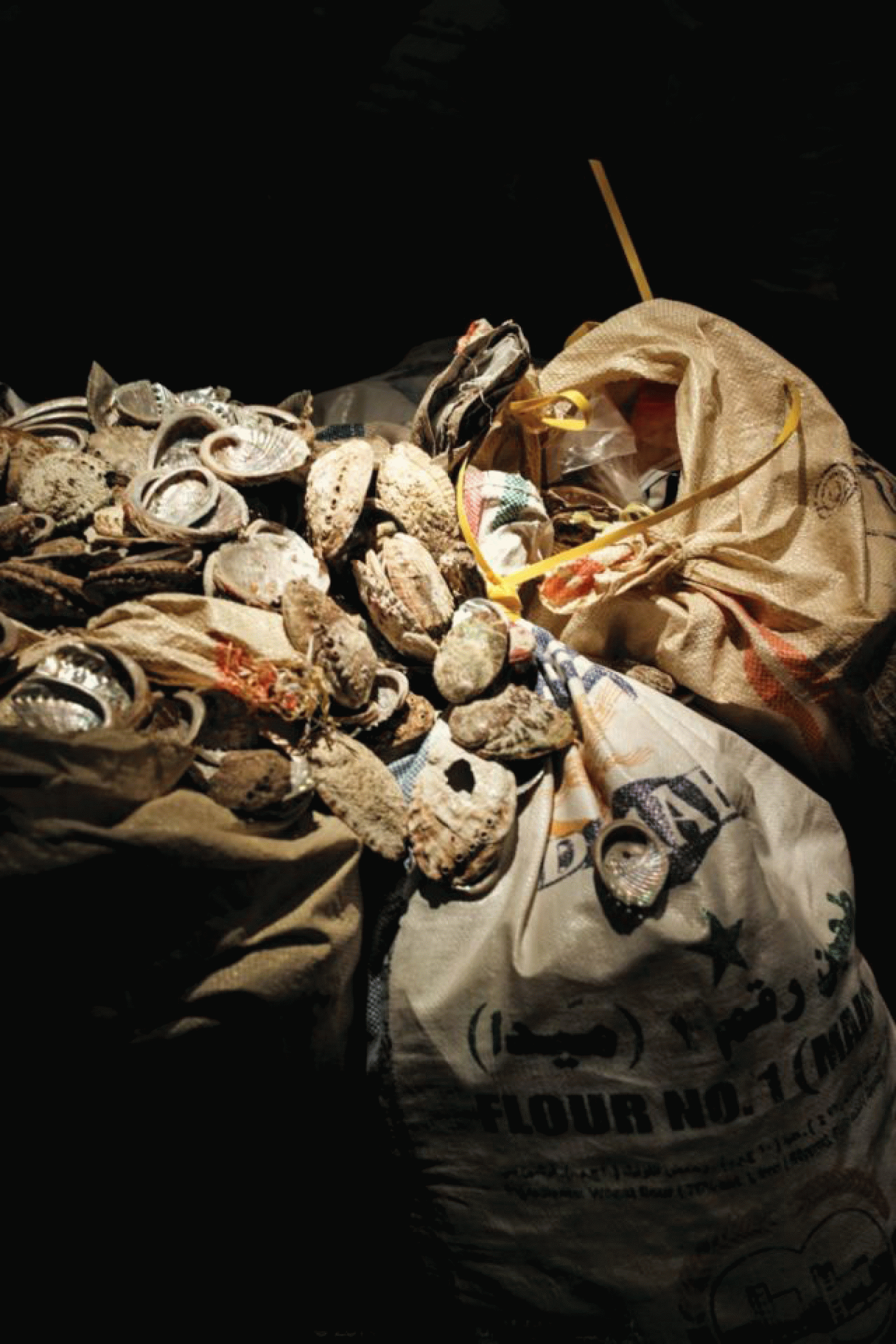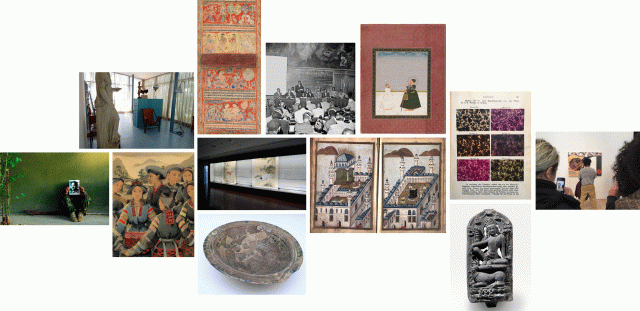Art Histories Seminar
Sophia Prinz: A Practice Theory of Entanglement (Or How Zheng Mahler Met "The Bull")

Zheng Mahler: A Season in Shell, 2014 (installation shot). Photo: Zheng Mahler
The fact that cultures cannot be clearly differentiated from one another, but instead carry a transcultural history of entanglement within them, has now become part of what (global) art history regards as "common sense". Nevertheless, there is a lack of reliable theoretical tools that adequately describe and analyse the socio-material, political and aesthetic processes of transculturalization. The aim of this lecture is therefore to outline a set of theoretical instruments that are compatible with various disciplines and consider not only the genuine relationality of all cultural phenomena but also the interconnectedness of aesthetic and social forms. The starting point for this is sociological practice theory, which here is expanded into a theory of entanglement with help from the concept of "migration of form" (Buergel). One of the fundamental theses here is that the processes of cultural encounter can only be understood by taking into account the collectively shared bodily and perceptual knowledge of the involved actors. These considerations are transferred to the installation "A Season in Shell": in 2013, the artist duo Zheng Mahler (consisting of the anthropologist Daisy Bisenieks and the artist Royce Ng) was commissioned by the Johann Jacobs Museum to trace the informal trade relations between China and Africa. Their research eventually led them to the Chungking Mansions, a highly dynamic building complex in the heart of Hong Kong used, in part, by African retailers as a hub for arranging business deals with their home countries. One day there, Bisenieks and Ng meet "The Bull", a young, ambitious businessman who sells not only mining rights but also Somali abalone to China...
However, this example does not merely serve to illustrate a cultural studies thesis. Rather, it is intended to show at the same time how analysis and representation of the processes and history of transcultural entanglement cannot rely solely on established academic methods.
Sophia Prinz studied applied cultural studies at the University of Lüneburg (now Leuphana University) with a concentration in art and visual culture. From 2006 to 2018, Prinz was a research associate at the department of cultural sociology, first at the University of Konstanz, then at European University Viadrina in Frankfurt (Oder). There, she received her doctorate in 2012 with a dissertation on the practice of seeing (published in 2014 under the title "Die Praxis des Sehens: Über das Zusammenspiel von Körpern, Artefakten und visueller Ordnung"). She conceived and coordinated "Mobile Worlds: On the Migration of Things in Transcultural Societies," a joint project sponsored by the Federal Ministry of Education and Research (BMBF) that ran from 2015 until 2018. For that project, she was awarded the Brandenburg Postdoc Award. Since 2018 she has been a visiting professor of the theory of design at Berlin University of the Arts (UdK). Alongside her academic commitments, she has also served as a research associate at the Johann Jacobs Museum in Zurich, contributing to many of its exhibitions. Sophia Prinz is an Art Histories Fellow funded by the Kunsthistorisches Institut in Florenz (Max-Planck-Institute).
13 maggio 2019, ore 17:00
Forum Transregionale Studien
Wallotstr. 14
14193 Berlin
www.forum-transregionale-studien.de
Avviso
Questo evento viene documentato fotograficamente e/o attraverso riprese video. Qualora non dovesse essere d’accordo con l’utilizzo di immagini in cui potrebbe essere riconoscibile, da parte del Kunsthistorisches Institut in Florenz a scopo di documentazione degli eventi e di pubbliche relazioni (p.e. social media) la preghiamo gentilmente di comunicarcelo.



